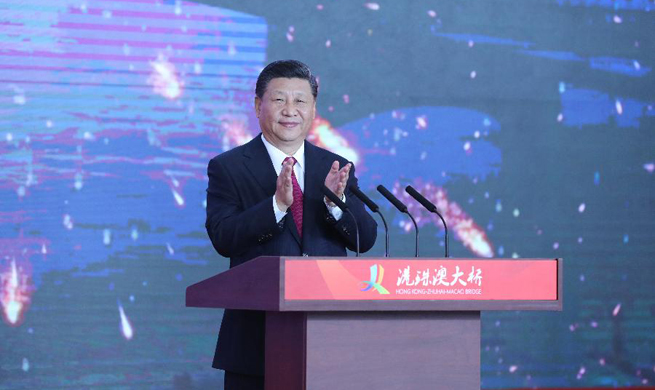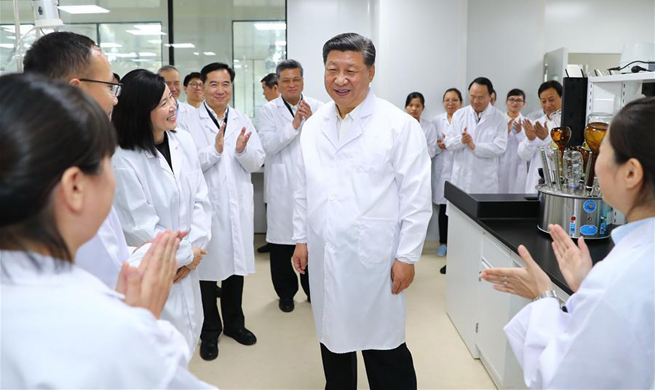BERLIN, Oct. 23 (Xinhua) -- German Foreign Minister Heiko Maas expressed regret on Tuesday in response to an announcement by U.S. President Donald Trump to leave the Intermediate-Range Nuclear Forces (INF) Treaty while vowing to personally attempt to save the landmark international non-proliferation accord.
Speaking to the Funke media group, Maas said that he would use all diplomatic resources at his disposal as long as there was still a chance for the INF treaty to survive following Trump's "regrettable" decision. "This agreement touches vital interests of Europe," he said.
According to Maas, the German government would raise the issue as a matter of priority during North Atlantic Treaty Organization (NATO) meetings. "We are not willing to launch a new arms race," Maas said. He added that Berlin was also ready to exert pressure on Russia to ensure its compliance with the INF treaty.
Over the past weekend, Trump announced that his government would formally de-ratify the agreement signed between the United States and Soviet Union back in 1987. Also known as the "Washington Treaty", the Cold War accord mandated its signatories to phase out land-based nuclear rocket systems with a reach of between 500 and 5,500 kilometers and established a corresponding monitoring regime.
Although both countries officially subscribe to the non-proliferation measures in question, Washington and Moscow have repeatedly accused each other of acting in breach of the INF treaty. Responding to Trump's announcement, Russia warned against a new nuclear arms race but also said it was open to participating in talks on how to preserve the existing agreement.
In the meanwhile, the U.S.-Russian diplomatic row has witnessed a rare moment of political consensus in Berlin. German parties from all ends of the ideological spectrum were united in their desire to prevent the INF treaty from unraveling entirely.
"INF must be preserved," said Roderich Kiesewetter, the representative of the ruling CDU/CSU bloc joint faction in the German parliament's foreign affairs committee.
Greens (Gruene) foreign policy spokesperson Agnieszka Brugger went as far as to describe the U.S. departure as "risky nonsense" and a "dangerous, dumb decision".
Stefan Liebich, Left party (Linke) foreign policy spokesperson, similarly criticized what he considered to be a "big mistake" of the U.S. president.
The Left party also joined calls by the Greens for Germany to cancel its nuclear cooperation with the United States under the framework of NATO and oppose the stationing of further intermediate range rockets in Europe.
However, Norbert Roettgen (CDU), president of the parliamentary foreign affairs committee, rejected this suggestion which he said ignored legitimate U.S. concerns over Russia's compliance with the INF treaty.













